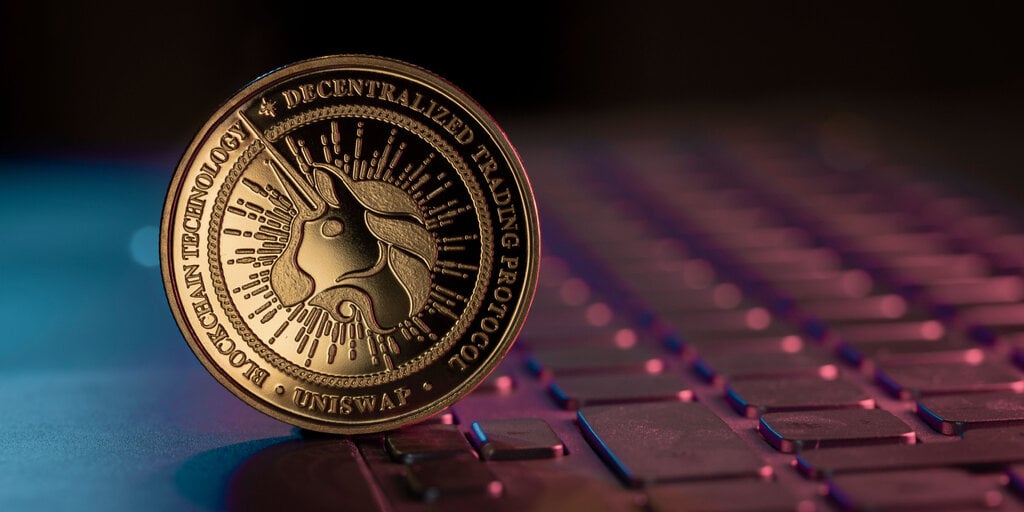As the crypto industry weathers what advocates say are oceans of regulatory uncertainty in the United States, a district judge’s ruling earlier this week dove into decentralized finance (DeFi), and may have calmed the waters for protocols like Uniswap.
Tossing out a class action lawsuit on Wednesday, Southern District of New York Judge Katherine Polk Failla found that Uniswap’s investors and developers were not liable under federal securities laws for so-called scam tokens that burned a trader.
In the decision, she parsed how the permissionless nature of projects powered by automated smart contracts creates situations where decentralized exchanges should be viewed differently from centralized ones, such as Kraken or Coinbase.
In the case of Uniswap, it was the respective issuers of such tokens that wrote the code to create them and make them tradable via liquidity pools. Because of that, it’s a group of pseudonymous developers who are actually at fault, Failla said—not Uniswap Labs.
According to Jack Graves, a Professor at Syracuse University College of Law, the ruling suggests that companies that exercise judgment over which tokens are listed on their platforms could be on the hook for token issuers’ wrongdoings. But that means DeFi, as its permissionless nature means that anyone can list any token, sails free.
“If you’re Coinbase, and you actually try to protect people who are trading, you’re subject to securities laws,” he told Decrypt. “But if you are Uniswap Labs, and you design something that is truly decentralized, it’s the Wild West.”
The Securities Exchange Commission (SEC) claimed earlier this year that several cryptocurrencies traded on Coinbase’s platform are unregistered securities. It specifically called out prominent coins like Solana (SOL) and Polygon (MATIC) as examples of offerings that make Coinbase a non-compliant company.
In court, Coinbase has argued that “none of the tokens” flagged by the SEC qualify as a security, and that the company stands by its review process.
More than 90% of the assets reviewed by the company don’t get listed, according to Coinbase Chief Legal Officer Paul Grewal. “Coinbase has rejected hundreds and hundreds of assets,” he wrote in a blog post.
Meanwhile, any person can create a token that’s listed on decentralized exchanges—part of the permissionless ethos that underpins DeFi as a whole.
Graves described the newfound regulatory gulf between Coinbase and Uniswap as a “strange kind of anomaly.” It resonates with DeFi’s code-is-law spirit, but he said one could also argue it’s a “backward result” in terms of protecting investors.
Regardless, Failla’s ruling will make it more challenging for the SEC to pursue enforcement actions against exchanges that are truly decentralized, a quality laid out by Failla across several facts in the case of Uniswap, Graves added.
However, in her decision, the district judge noted that the intersection of federal securities law and DeFi transactions is far from defined.
“Whatever concerns DeFi transactions engender, the law is currently developing around these exchanges,” she wrote. “Regulators may someday address this gray area.”
While the gears of government turn slowly, there have been DeFi-related movements of late. A bill in Congress was proposed in July that would give the U.S. Treasury Department authority over DeFi, and the SEC said in April it would modify the definition of what constitutes an exchange to cover DeFi.
“Make no mistake: Many crypto trading platforms already come under the current definition of an exchange and thus have an existing duty to comply with the securities laws,” Gensler said of DeFi at the time. “Investors in the crypto markets must receive the same time-tested protections that the securities laws provide in all other markets.”
As a body of case law develops around DeFi and potential action from Congress looms out on the horizon, regulatory tides could shift. But, for the time being, Failla’s decision demarcates DeFi from centralized crypto exchanges and acknowledges the technical nuances at play.
Stay on top of crypto news, get daily updates in your inbox.
- SEO Powered Content & PR Distribution. Get Amplified Today.
- PlatoData.Network Vertical Generative Ai. Empower Yourself. Access Here.
- PlatoAiStream. Web3 Intelligence. Knowledge Amplified. Access Here.
- PlatoESG. Automotive / EVs, Carbon, CleanTech, Energy, Environment, Solar, Waste Management. Access Here.
- PlatoHealth. Biotech and Clinical Trials Intelligence. Access Here.
- ChartPrime. Elevate your Trading Game with ChartPrime. Access Here.
- BlockOffsets. Modernizing Environmental Offset Ownership. Access Here.
- Source: https://decrypt.co/154651/uniswap-ruling-creates-regulatory-anomaly-defi-legal-scholar














